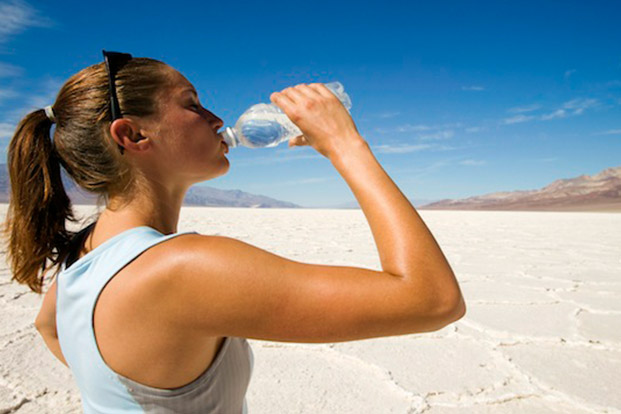Appropriate Water Levels for Your Body
Apr 19, 2022
Water is essential for life, without water humans can survive only for few days. Water comprises 75% of body weight in infants and upto 55% in elderly. It is essential for cellular homeostasis and life. At present we have no accepted method of assessing hydration, urine output is often used. The present system indicates recent volume of fluid. Many use urine morality to measure recent state of hydration.
Water in our Body:

The following are few facts to know:
– The water presence in the body is higher in men than women and the same falls with age.
– Most adults lose 2.5 to 3.0 litres of water per day. More water is lost from the body in hot weather and during prolonged exercise.
– Elderly people lose about 2.0 litres per day.
– An air traveller can lose appox 1.5 litres of water during a 3.0 hour flight.
– Water loss should be replaced immediately, otherwise the same can lead to dehydration and other complications.
Water Content in Food:
Most food even those that looks hard contain water. Body gets approx 20% of water from solid foods. Digestion process also produces approx 10% of body water requirement. Rest comes from liquid intake.
Recomended Daily Fluid Intake: In litre per day:
| infant 0-6 month | 0.7(breast milk or formula) |
| 7-12 month | 0.9 |
| 1-3 yrs | 1.0 |
| 4-8 yrs | 1.2 |
| Girls 9-13 yrs | 1.4 |
| Boys 9-13 yrs | 1.6 |
| Girls 14-18 yrs | 1.6 |
| Boys 14-18 yrs | 1.9 |
| Women | 2.1 |
| Men | 2.6 |
Majority of intake is from plain water except in case of infants.
Sedentary people, cold climate, or food having high water content like fruits require less water.
Who Require a Higher Fluid Intake?
*People having a high protein diet
*People having a high fiber diet
*During pregnancy and lactation(750 to 1000ml extra).
*People suffering from Diarrhoea and vomiting
*Exposure to hot climate.
Risk of In Adequate Fluid Intake:
*Dehydration
*Kidney stones
*UTI- Urimary Tract Infections
*Lower physical and mental performances.
Symptoms of Dehydration:
*Thirst
*Headache
*Lethargies
*Tiredness, Weakness
*Confusion
*High Colored Urine, Decreased Urine Output
Causes of Dehydration:
*Less water intake
*Increased sweating
*Increased urine output due to hormonal disease
*Diarrhoea, vomiting
*Burns









